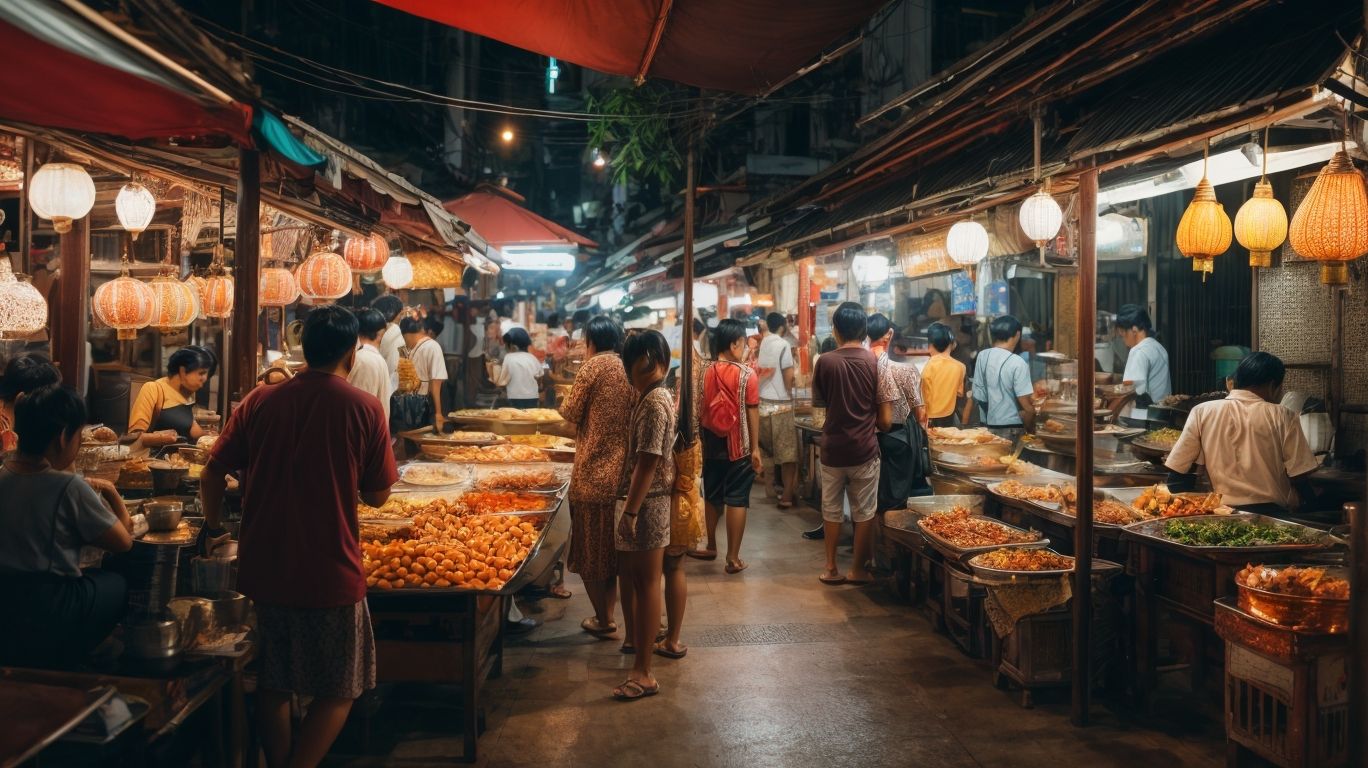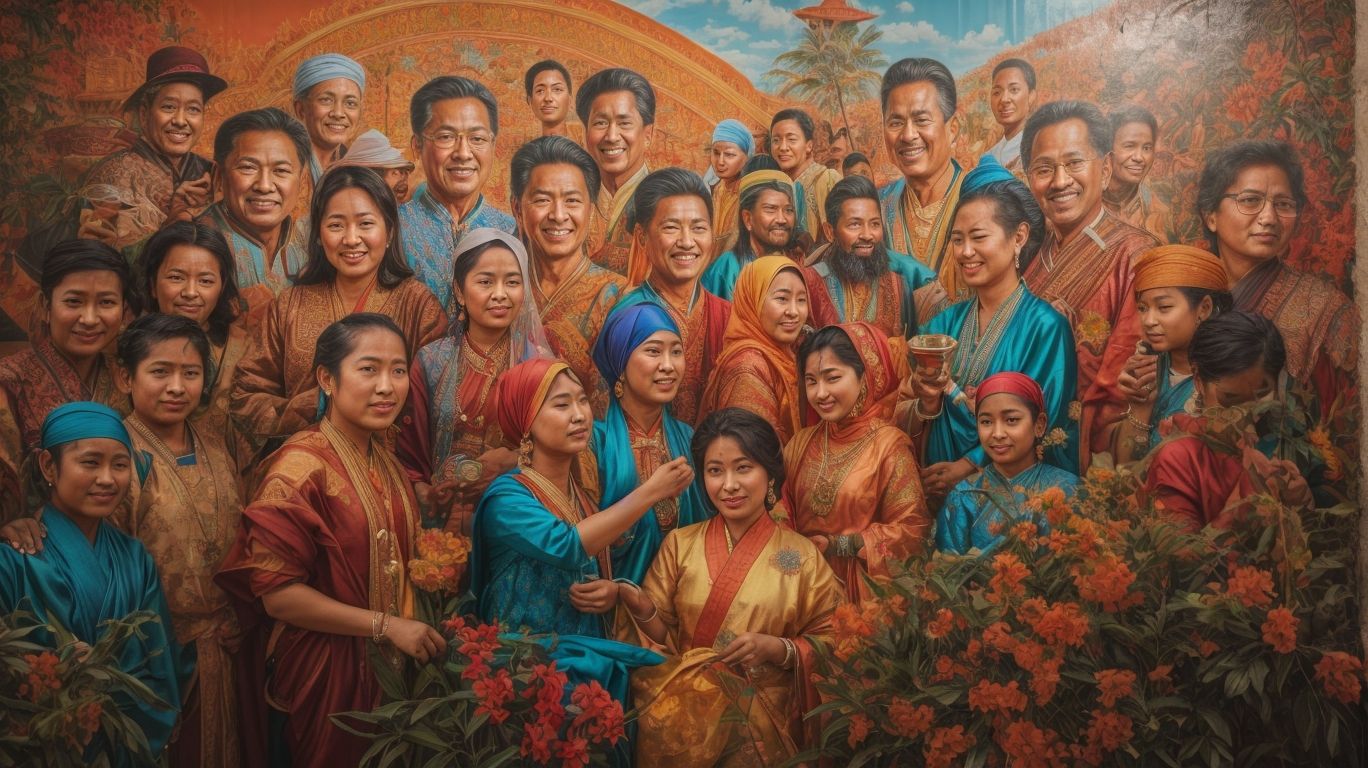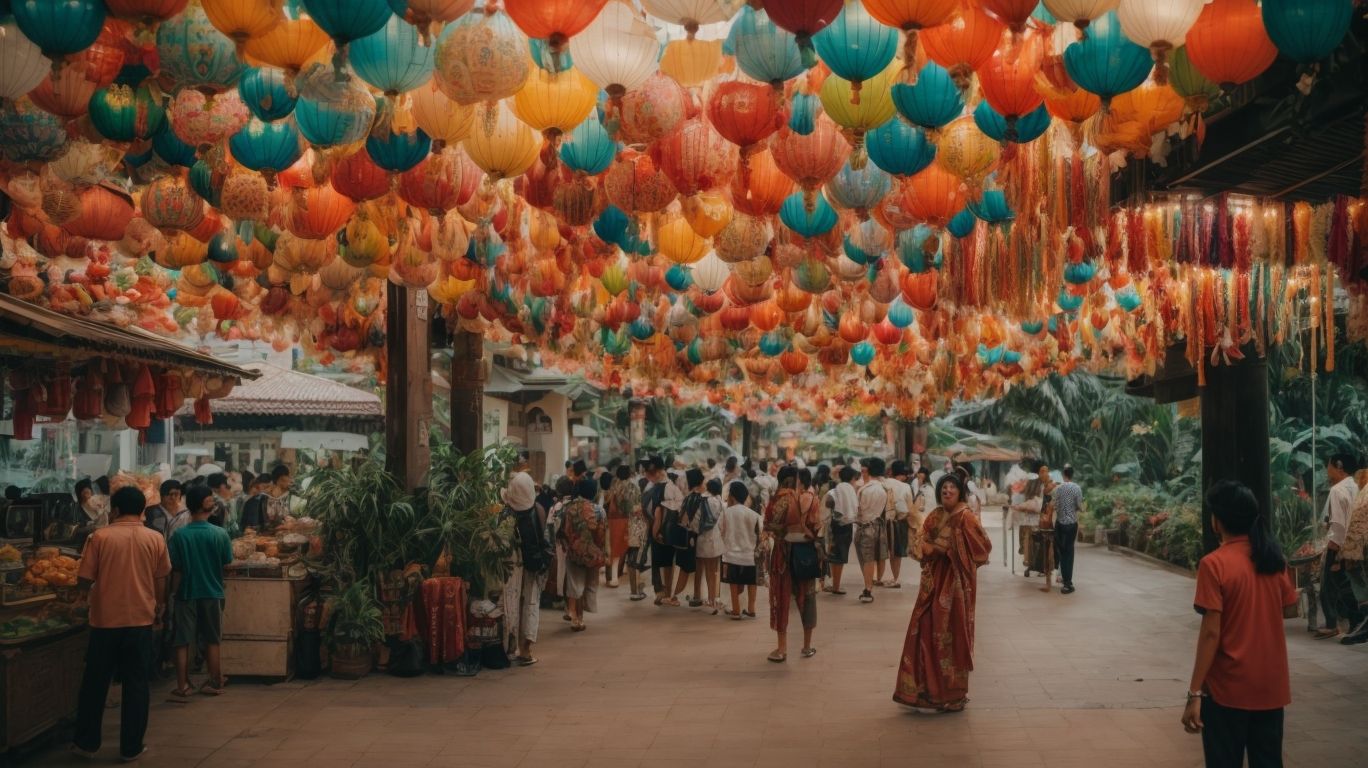
As an expat living in Thailand, have you ever struggled to fully integrate into the local culture? Do you feel like an outsider, disconnected from the traditions and way of life? In this article, we will explore the challenges faced by expats in embracing Thai culture and offer insights on how to overcome them.
What Is Thai Culture?
Thai culture is a diverse and vibrant blend of traditions, customs, and beliefs that have evolved over centuries. It encompasses various aspects, including religion, art, cuisine, and social norms. The culture places great emphasis on respect, hierarchy, and the concept of “saving face.” The Thai people are renowned for their warm hospitality and strong sense of community.
Traditional Thai festivals, such as Songkran and Loy Krathong, showcase the lively and colorful nature of the culture. Buddhism holds great significance in Thai society, influencing daily life and values. The concept of “sanuk,” which means finding joy and happiness in all aspects of life, is deeply ingrained in Thai culture.
What Are The Basic Beliefs And Customs Of Thai Culture?
Thai culture is deeply shaped by a variety of beliefs and customs that are ingrained in society. These include:
- Buddhism: The majority of Thais practice Theravada Buddhism, which greatly influences their daily lives and rituals.
- Respect for elders: In Thai culture, it is important to show respect to older individuals and seek their guidance.
- Hierarchical society: Thai society has a strong emphasis on social status and respect for authority, making it a hierarchical society.
- Saving face: Thais value harmony and avoiding confrontation, often prioritizing maintaining a positive public image.
- Spirituality and superstitions: Animist beliefs are incorporated into Thai culture, with many rituals and practices involving spirits and luck.
- Festivals and traditions: Thailand is renowned for its vibrant festivals, such as Songkran and Loy Krathong, which celebrate important aspects of Thai culture.
By understanding and respecting these beliefs and customs, individuals can better navigate and appreciate the unique culture of Thailand.
Why Are Expats Attracted To Thai Culture?
Expats are drawn to Thai culture for its rich history, warm hospitality, and vibrant traditions. The allure lies in the country’s unique blend of ancient traditions and modern conveniences. Thai cuisine, renowned for its flavors and diversity, is a major attraction. The affordability of living in Thailand, along with its stunning natural beauty and tropical climate, further entices expats. Additionally, Thailand’s reputation for being a welcoming and friendly country plays a significant role in attracting expats. The historical significance of the Ayutthaya Kingdom, which flourished from the 14th to 18th centuries, adds to the fascination of Thai culture.
So, why are expats so attracted to Thai culture?
What Is The Allure Of Thai Culture For Expats?
Expats are drawn to the allure of Thai culture for its unique blend of traditions, hospitality, and vibrant lifestyle. The country’s rich history, Buddhist beliefs, and the warm and welcoming nature of the Thai people are all part of its charm. Additionally, the natural beauty, delicious cuisine, and affordable cost of living make it an attractive destination.
Embracing Thai culture allows expats to gain new perspectives, broaden their horizons, and develop a deep appreciation for the local way of life. It also offers opportunities for personal growth, learning, and forming meaningful connections. Immersing oneself in Thai customs and traditions can greatly enhance integration and make the expat’s experience more fulfilling. Suggestions for fully embracing Thai culture include:
- Learning the language
- Participating in local festivals
- Exploring the diverse regions of the country
How Do Expats Embrace Thai Culture?
Expat residents can fully embrace Thai culture by following these steps:
- Learn the Thai language to effectively communicate with locals and fully immerse oneself in the culture.
- Participate in local festivals and traditions, such as Songkran and Loy Krathong, to personally experience Thai customs and traditions.
- Try traditional Thai cuisine and become familiar with the local ingredients and cooking techniques.
- Engage with the local community by joining clubs or organizations that promote cultural exchange.
- Explore Thailand’s historical and cultural landmarks, such as temples and palaces, to gain a deeper understanding of the country’s rich heritage.
Pro-tip: Meaningful conversations with locals about their culture can foster connections and enhance your cultural experience.
What Are The Challenges Of Embracing Thai Culture As An Expat?
Embracing Thai culture as an expat can bring about various challenges that require adaptation and adjustment.
- Language barrier: Communicating effectively can be difficult without proficiency in the Thai language.
- Cultural norms: Understanding and respecting Thai customs, traditions, and social etiquette can be a learning curve.
- Food and diet: Adapting to the local cuisine, including unfamiliar ingredients and spices, may pose a challenge.
- Social integration: Building relationships with locals and navigating social circles can be challenging due to cultural differences and language barriers.
- Workplace culture: Adjusting to Thai work practices, hierarchies, and communication styles can be challenging for expats.
Expats can overcome these challenges by enrolling in language classes, participating in cultural immersion programs, and building relationships with locals. Patience, open-mindedness, and a willingness to learn are crucial for successfully embracing Thai culture.
How Do Expats Overcome These Challenges?
- How Do Expats Overcome These Challenges?
- Seeking Cultural Understanding: Expats actively learn about Thai culture, including customs, traditions, and values, to overcome challenges.
- Language Acquisition: Learning the Thai language helps expats effectively communicate, connect with locals, and navigate daily life.
- Building Relationships: Expats form friendships with locals, join community activities, and participate in cultural events to overcome challenges.
- Adapting to Social Norms: Understanding and respecting Thai social norms, such as the concept of “saving face,” helps expats integrate better into the local community.
- Embracing Flexibility: Being open-minded and adaptable to different cultural practices and expectations is essential for expats to overcome challenges.
- Patience and Perseverance: Overcoming cultural challenges takes time and effort, so expats need to be patient and stay determined in their cultural integration process.
What Are The Benefits Of Embracing Thai Culture As An Expat?
As an expat, embracing Thai culture brings numerous benefits. It allows you to fully immerse yourself in a vibrant and rich heritage, gaining a deeper understanding of Thai customs, traditions, and values. This integration with the local culture also fosters meaningful connections with locals, leading to a more fulfilling and authentic experience. By participating in local festivities and events, expats can expand their social circle and create lasting memories.
Additionally, embracing Thai culture promotes personal growth and adaptability, enhancing cross-cultural communication skills and broadening perspectives. Overall, embracing Thai culture as an expat opens doors to unique experiences, friendships, and personal development.
How Does Embracing Thai Culture Help With Integration And Assimilation?
Embracing Thai culture can greatly aid in the integration and assimilation process for expats through the following steps:
- Language: Learning the Thai language enables better communication and connection with locals.
- Etiquette: Understanding and practicing Thai customs and etiquette fosters respect and positive interactions.
- Traditions: Participating in Thai festivals and traditions shows appreciation for the culture and helps to build relationships.
- Food: Exploring and enjoying Thai cuisine helps to gain a deeper understanding and connection with Thai people.
- Socializing: Engaging with the local community, joining clubs or organizations, and making friends with Thai people can greatly support integration.
What Are The Personal Growth And Development Opportunities Of Embracing Thai Culture?
Embracing Thai culture as an expat offers a plethora of opportunities for personal growth and development.
- Learning a new language, such as Thai, can enhance cognitive skills and improve multicultural communication abilities.
- Immersing oneself in Thai customs and traditions can cultivate cultural sensitivity, empathy, and understanding.
- Engaging in Thai arts, such as traditional dances or martial arts like Muay Thai, can promote physical fitness and discipline.
- Participating in local festivals and ceremonies can foster a sense of community and belonging.
- Exploring Thai cuisine and culinary practices can expand culinary knowledge and appreciation for different flavors and ingredients.
- Developing friendships with Thai locals can broaden perspectives and create lifelong connections.
- Adapting to the Thai work culture can enhance adaptability and intercultural competence.
What Are Some Real-Life Examples Of Expats Embracing Thai Culture?
Expats embracing Thai culture can be seen through various real-life examples.
- Language: Some expats actively learn Thai and engage in conversations with locals.
- Festivals: Many expats participate in Thai festivals, such as Songkran, Loy Krathong, and the Thai New Year.
- Cuisine: Expats often explore and appreciate Thai cuisine, not only by dining at local restaurants but also by learning to cook traditional dishes.
- Martial arts: Some expats practice and train in Thai martial arts like Muay Thai.
- Traditional arts: Many expats learn and practice Thai traditional arts, such as Thai dance or traditional music.
These examples demonstrate how expats actively immerse themselves in Thai culture, fostering cultural exchange and appreciation.
How Have These Expats Adapted To Thai Culture And Made It Their Own?
Adapting to Thai culture as an expat involves embracing the local customs and traditions. Here are some steps expats take to make Thai culture their own:
- Learning the language: Expats learn basic Thai phrases to effectively communicate with locals.
- Respecting customs: Expats follow local etiquette, including removing their shoes before entering homes or temples.
- Exploring the cuisine: Expats sample traditional Thai dishes and develop an appreciation for the unique flavors.
- Participating in festivals: Expats join in celebrations like Songkran and Loy Krathong to experience Thai traditions firsthand.
- Building relationships: Expats foster connections with locals, creating a sense of belonging and gaining a deeper understanding of the culture.
One expat, Sarah, fully immersed herself in Thai culture by volunteering at a local school, teaching English, and learning about the Thai education system. Through this experience, she gained a deeper appreciation for Thai values and formed lasting relationships with the community. Sarah’s story highlights how expats can adapt to Thai culture and make it their own by actively engaging in local activities.
What Lessons Can Be Learned From These Expats’ Experiences?
Expats who fully embrace Thai culture can teach us valuable lessons about adaptability, respect, and open-mindedness. By immersing themselves in Thai customs, language, and traditions, these expats demonstrate the importance of embracing and respecting local culture. They show us that by being open to new experiences and learning from the locals, we can develop meaningful connections and integrate into a new community. These expats also highlight the growth and personal development that comes from stepping out of our comfort zones and embracing unfamiliar cultures. Their experiences remind us of the beauty of diversity and the enriching lessons that can be learned from different cultures.
Throughout history, human migration and cultural exchange have been full of stories of individuals who have courageously ventured into new lands, embracing the customs and traditions of the local people. From the Silk Road to the Age of Exploration, these encounters have shaped our world and contributed to the richness of our global heritage. Today, expats who embrace Thai culture continue this ancient tradition of cross-cultural exchange, illustrating how the lessons learned from their experiences can enrich not only their own lives but also the lives of those around them. As we celebrate the diverse tapestry of human experience, let us learn from the lessons of these expats and continue to cultivate a world that values and embraces cultural diversity.






